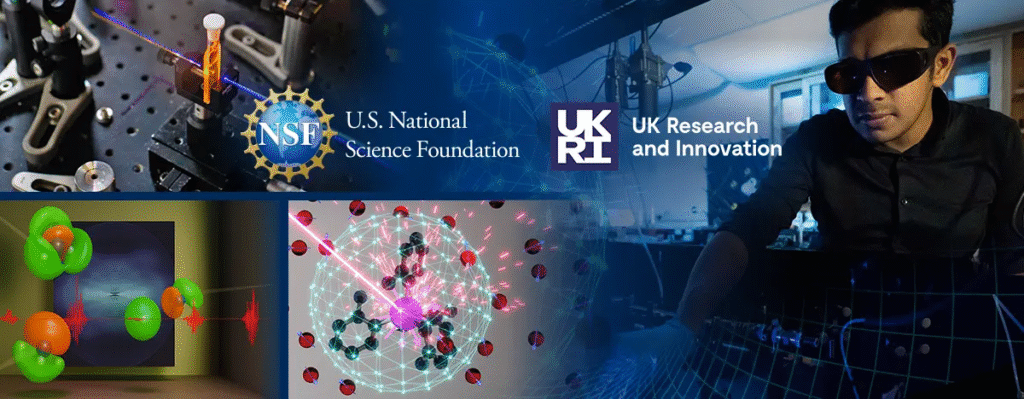The U.S. National Science Foundation (NSF) and UK Research and Innovation (UKRI) are investing a total of $4.7 million from NSF and £4.2 million from UKRI’s Engineering and Physical Sciences Research Council (EPSRC) in eight joint research projects. This collaborative effort focuses on an underexplored area of science: how quantum information affects chemical reactions and molecular systems, and how that knowledge can be used to develop new technologies.
The research projects aim to harness the complexity of chemical systems to create new types of molecular-based qubits and other components for quantum computing, sensing, and communications. The projects, which involve U.S. and U.K. researchers, include research at the University of Chicago (led by David Awschalom) on developing a chemical toolbox for single-qubit entanglement, research at Purdue University on controlling triplet spin states in organic molecule quantum emitters, and research at Stanford University on attosecond photoelectron imaging with quantum light. Potential applications of the research include molecular-scale memory systems and ultrasensitive molecular compasses.
The partnership, which builds on the U.S.-U.K. Technology Prosperity Deal, is intended to strengthen scientific partnerships between institutions in both countries and provide training opportunities for graduate students and early-career researchers. In addition to the eight projects, NSF and UKRI are launching a new opportunity for center-to-center collaboration, which will provide up to $500,000 in supplemental funding for centers to partner with their counterparts in the other country.
Read the full announcement on the NSF news site here and find details on the new research projects here.
September 19, 2025
